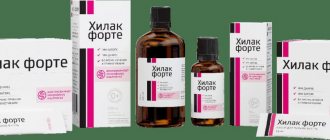Vomiting is a natural reaction of the gastrointestinal tract when it is impossible to digest fatty foods and in various types of poisoning. For some time after it, a person may be bothered by pain in the epigastric region. When the stomach hurts after vomiting, this is a completely normal phenomenon, since in order to get rid of the food that has entered it, our muscular digestive organ spasms and removes it under pressure . However, persistent pain may be a complication of intoxication. How to determine this, reduce discomfort and improve the condition after food poisoning?
The nature and intensity of pain
Pain may persist for several days after poisoning or intestinal infection, until the acute phase of the disease comes to an end. In this case, improvement should occur after the first day after the first symptoms were noticed.
The intensity and nature of abdominal pain after poisoning can be different: dull, aching, cutting, stabbing. In this case, unpleasant sensations may disappear or appear again. Cramps in the stomach usually occur due to alcohol poisoning or when pathogenic bacteria enter the gastrointestinal tract. Aching pain is characteristic of the development of any inflammatory process, for example, with the formation of a stomach ulcer.
Pathology of the genitourinary system
Most often, nausea and lower back pain occur due to urolithiasis. Even at the stage of remission, people almost always feel their back aching.
- pain in the groin, back, and genital area intensifies as the stone passes;
- burning during urination;
- symptom of congestion - when the stream is interrupted, urine flow continues when changing position;
- temperature rises;
- blood pressure rises high.
Treatment depends on the size of the stones. Small stones are eliminated with medications that increase urination or by crushing them. A surgical method is used to remove large stones.
Prostatitis
If a man feels nauseous and his lower back hurts, most likely he has prostatitis. The first signs of inflammation of the prostate gland are mild and are not taken seriously. Over time, other symptoms appear:
- difficult and painful urination;
- severe pain radiates to the lower abdomen, anus, testicles, scrotum, perineum, back, suprapubic region;
- burning in the urethra;
- increased sweating;
- dizziness;
- a man notices accelerated ejaculation during sexual intercourse, decreased potency;
- urination becomes more frequent at night;
- sweating and chills.
Infectious prostatitis in young people develops after suffering from trichomoniasis or gonorrhea. In older age, the cause of the disease is stagnation of sperm and secretions, caused by a change in the rhythm of sexual life, rare ejaculation, and a sedentary lifestyle.
Complex therapy includes the antibiotic Rovamycin and the antibacterial drug Prostamol Uno. Reflexology, massage, ultrasound and laser treatments are used.
Mechanism of stomach pain
The mechanism of pain after vomiting is due to the fact that if it is impossible to neutralize toxins and digest foods that have entered it, the stomach stops the digestion process, and the intestines do not allow undigested food to pass through. Therefore, nausea sets in, peristalsis slows down, and food leaves the body through the esophagus in the form of vomit. The pain can be felt in the center under the ribs or above the navel . When toxins have managed to enter the intestines, pain can spread throughout the abdomen. If you vomit for a long time, the esophagus also suffers, since its walls are corroded by the passage of vomit containing toxins and stomach acid through them.
In addition, poisoning can become a trigger for the development of chronic diseases that were not discovered earlier, the person was simply on the verge of their manifestation. After vomiting, the stomach hurts when, for example, a victim of intoxication was on the verge of developing gastritis, and factors such as additional stress on the gastrointestinal tract and an imbalance in the acid balance in the stomach during poisoning served as the impetus for the first attack.
Severe food poisoning can independently provoke gastritis, especially when problems with high acidity occurred long before it. Bacterial toxic infection, coupled with vomiting, irritates the walls of the stomach and therefore pain occurs.
A stomach ulcer can form if a very aggressive infection enters the body . If after vomiting your stomach has been hurting for a week, then this is an obvious complication and the sooner you visit a doctor, the sooner you can get rid of the unpleasant symptom. This reaction may be a consequence of salmonellosis or dysentery.
It happens that after the release of copious amounts of vomit, the esophagus hurts after vomiting - this indicates that the acid could corrode its walls and ulcers have formed on them. Erosion of the esophagus, like ulcers and gastritis, requires adequate treatment in a hospital.
If a person has eaten stale vegetables, then pain in the epigastric region after vomiting indicates the development of gastroenteritis. In addition to pain, this disease is accompanied by symptoms such as nausea and frequent loose stools.
Why do women and men feel nauseous and have lower back pain?
Why does the lower back hurt in men and women? Vomiting and back pain occur with pathologies of many organs. The reasons can be very diverse - from a psychogenic factor to metastases of malignant tumors.
Vomiting and nausea - these two sensations are interconnected. Vomiting occurs as the logical conclusion of nausea. First, there is a feeling of pressure in the pit of the stomach, dizziness, and drooling. When the waves of reverse peristalsis intensify, they pull the contents of the stomach with them. Then vomiting occurs - a reflex release of food through the esophagus, throat and nasal passages.
Pain caused by alcohol poisoning
Alcohol poisoning is one of the most common causes of stomach pain. Excessive consumption and the wrong combination of alcoholic drinks almost always ends in intoxication. The person feels severe dizziness, nausea and is completely disoriented. Ingestion of large doses of ethanol damages the walls of the stomach and indiscriminately kills both the natural and beneficial microflora of the gastrointestinal tract. After vomiting, abdominal pain occurs due to the absorption of ethanol breakdown products into the walls of the stomach and intestines.
Of course, if you drink just a little high-quality alcoholic drink, there will be no harm, but when there is alcohol dependence and doses of poison continuously enter the stomach, its mucous membrane is gradually destroyed. The strength of the drink and the degree of damage to the stomach are directly proportional . Alcohol, which contains more than 20 percent ethanol, destroys the mucous membranes of the stomach very deeply, reaching the blood vessels. It is for this reason that pain in the stomach after alcohol poisoning has a cutting character. In this case, the pain syndrome will persist until the hangover passes and the recovery period after intoxication ends.
Possible complications
The continued effect of the toxic substance and the delay in medical care lead to complications:
X-ray of a wrist with arthritis
- Acute renal failure. A serious condition in which an organ does not perform its function. Metabolic products are not eliminated from the body, but accumulate. Acute failure becomes chronic if not treated in a timely manner. Such patients are on hemodialysis for life.
- Inflammation of the mucous membranes - lungs, stomach, heart, intestines. Develops due to the accumulation of metabolic products.
- Polyarthritis. Damage to several joints, which is associated with the accumulation of salts and urea.
- Uremic coma. A serious condition caused by brain damage. Develops during end-stage renal failure.
The risk of complications is higher during pregnancy, childhood and old age.
Reason to urgently consult a doctor
If your stomach hurts after vomiting, this is in most cases a common reaction to pathogenic bacteria entering the gastrointestinal tract. However, if you have a whole set of dangerous symptoms, you should consult a doctor immediately. Among them:
- vomiting and diarrhea with bloody streaks and mucus;
- increased or, conversely, decreased temperature;
- weakness and general malaise;
- disruption of the respiratory system;
- dry lips and mucous membranes, dark urine;
- after vomiting, the lower back hurts, which indicates a high concentration of uric acid, which can lead to kidney dysfunction;
- pain that does not go away for a long time.
If, after poisoning, paroxysmal, intensifying pain and cramps suddenly appear in any area of the abdomen or back, then you must immediately contact an ambulance. This may be a symptom of acute appendicitis, renal failure, perforated ulcer or inflammation of the pancreas - pancreatitis, which is no less life-threatening.
When a person has been drinking alcohol immoderately for a long time and has subsequently overcome a harmful addiction, but the pain in the stomach has not gone away, but on the contrary, is getting worse, this is also a reason to contact a specialist.
Getting examined and determining the etiology of stomach pain after severe vomiting will not hurt in any case. Whether it is food poisoning or an intestinal infection, treatment of these diseases should be carried out in a hospital. Only a specialist, analyzing the course of the disease and making a diagnosis, will be able to prescribe adequate treatment , which will help avoid severe complications after intoxication that provoke pain in the stomach.
Why does your back hurt most often?
Even ancient doctors argued that the spine is not only a set of vertebrae, but also the main frame of the body, and human health largely depends on its condition. A large number of nerve endings of both the central and peripheral nervous systems are concentrated here. Most internal organs are connected to the spine by nerve fibers, and pathological processes in them affect its condition.
The combination of pain with nausea is evidence of very serious problems; a decision should be made as soon as possible . The faster osteopathogenic diseases are differentiated from problems with internal organs, the lower the risk of negative consequences, and the treatment will take place faster and with less financial losses. Sometimes pain in the lower back is not associated with vertebral problems at all; pain syndromes radiate to this area from the internal organs. Let's look at two types of lower back pain with nausea - those that depend on the condition of the spine and those that are not related to its problems.
Traditional methods of treatment
What to do if your stomach hurts after vomiting? You can overcome the pain yourself by resorting to traditional methods of treatment. What is the main goal of such therapy? The mucous membranes of the muscular digestive organ are damaged, and hydrochloric acid and digestive enzymes only aggravate this condition and slow down the healing process of the affected areas. Therefore, the walls of the stomach must be protected from external irritants with enveloping agents and products . It should be borne in mind that the food should not be heavy, since the gastrointestinal tract is not yet strong after the toxic attack. Perfect for this:
- low-fat chicken broth or jellied meat;
- raw eggs;
- liquid oatmeal, cooked in water or milk and water in a 50/50 ratio.
Due to their viscosity, these dishes will protect the stomach mucous membranes for some time and allow it to recover. In addition, they are nutritious and easy to digest, which does not overload the compromised digestive system.
Despite gentle food, the pain syndrome can persist for a long time. Stomach pain after vomiting can be well relieved by:
- chamomile infusion;
- aloe juice;
- sea buckthorn or linseed oil.
Chamomile soothes and heals, and aloe juice helps damaged areas heal and restore the previous structure of the mucous membranes . The oil cleanses, improves peristalsis and helps toxins leave the body as quickly as possible. If you resort to traditional methods of treatment, the pain in the stomach will go away within two to three days after its onset, since muscle tissue tends to renew itself quickly.
Diagnosis of back pain
If you experience weakness, nausea, or back pain, it is better to first make an appointment with a therapist. Anamnesis will allow the doctor to suggest a diagnosis of the disease and conduct the necessary examination:
- The diagnosis of gastric and duodenal ulcers is established after endoscopic biopsy of the inner wall of the stomach. The modern technique excludes the oncological nature of the mucosal defect and confirms the presence of Helicobacter pylori, a common cause of ulcers. This bacterium is also detected by PCR analysis of feces and saliva. An X-ray of the stomach with barium and a study of gastric juice are performed.
- If pancreatitis is suspected, blood and urine are tested for enzymes - amylase, trypsin, lipase. An analysis is carried out for the content of sugar and bilirubin. Ultrasound examination (ultrasound) of the organ and esophagogastroduodenoscopy are used.
- During the diagnosis of urolithiasis, urine, blood tests, ultrasound and kidney x-rays are performed. If ureteral or bladder stones are suspected, the urologist performs a cystoscopy.
- Examination for prostatitis includes tests of urine, blood, and prostate secretions. Ultrasound determines the size of the organ.
- For pathologies of the musculoskeletal system, magnetic resonance imaging (MRI) and computed tomography (CT) are performed. Radiography of the limbs and spine is used in the same way as before.
- The diagnosis of meningitis is confirmed by spinal puncture, bacteriological culture of mucus from the nasopharynx for pneumococcus, meningococcus.
Analyzing the results of instrumental and laboratory tests, the therapist prescribes treatment or refers the patient to a specialist.
Diet
You cannot do without a properly organized diet. If you continue to eat spicy, fatty and unhealthy food, washing it down with alcohol, traditional methods are powerless , as are medications.
You need to learn a simple rule: in order for the pain to go away and your stomach to work as before, you need to eat in small portions, without giving up snacks or overeating. Only in this case will the stomach slowly restore its digestive function and not become overloaded.
If the pain is gone, this does not mean that you can leave the regime. For some time you need to stick to a diet: well-cooked rice, oatmeal, crushed boiled potatoes without oil, stewed vegetables, boiled or baked meat or fish, low-fat kefir or homemade yogurt - the best menu for recovery.
Measures to help in case of organ damage as a result of poisoning
Since the kidneys are a vital organ, self-medication with traditional medicine should be avoided. Treatment and recovery should take place under the close supervision of the attending physician; the disease may have to be treated in a hospital.
The main emergency measure is first and foremost the removal of intoxication from the body. Drinking plenty of fluids is encouraged for several hours after poisoning. First aid also includes taking absorbent agents, for example, activated carbon. You should not take antibiotics if you are intoxicated.
If the symptoms of poisoning do not go away or a deterioration in the victim’s condition is noticed, then immediate hospitalization is necessary.
In a hospital setting, the patient undergoes measures: hemodialysis, diuresis, hemosorption. In some cases, a blood transfusion is required. The choice of treatment is determined by the doctor, based on studies showing the degree of organ damage.
Drug treatment
Medicines for the treatment of stomach pain are prescribed individually by a doctor after diagnosis. However, you can also help yourself get rid of toxins. To eliminate the pain syndrome, you can take no-shpa, and to quickly overcome the pathogenic flora, you need an enterosorbent, for example, white or activated carbon, polysorb or sorbex .
To achieve a softer, but no less effective result, smecta and enterosgel are used. To restore the natural microflora of the gastrointestinal tract, you will need prebiotics and probiotics, such as lacidophil, hilak forte, bifilact, lactiale or yogurt in capsules.
It should be clearly understood that increasing pain cannot be treated in this way. If an ulcer turns out to be a complication after poisoning, then self-administration of strong sorbents can be harmful and worsen the situation. Therefore, if you notice stomach pain that lasts more than three days, you should immediately visit a gastroenterologist.
Based on the above information, we can conclude that pain after poisoning varies in intensity and location. If we talk about unobtrusive pain in the stomach after vomiting, then this is a natural phenomenon that usually goes away as you recover. When the pain is sharp, intensifying and cutting, then this is an alarm signal for which you need to contact a doctor and urgently take action .
Your actions
In case of poisoning that affects the functioning of the kidneys, you must first of all call an ambulance.
In case of kidney intoxication, it is important to start taking any action even before the ambulance arrives, since every minute is important. Carrying out pre-medical measures, as well as qualified medical care, guarantees a quick recovery without serious complications
In case of poisoning that affects the functioning of the kidneys, you need to do the following:
- First of all, call an ambulance.
- While waiting for the ambulance, the patient needs to have his stomach pumped if there is a suspicion that toxins have entered the body through the digestive system. If poisons enter the body through the skin, the patient must be wiped first with a damp and then with a dry cloth.
- In case of poisoning with ethyl alcohol, it is necessary to take an antidote, which is ethyl alcohol.
What to do at home if your body aches?
As soon as nausea appears, do not hold back vomiting. This is a protective reaction of the body designed to remove bacteria, toxins and viruses. If involuntary urges do not appear, it is necessary to artificially induce vomiting to cleanse the stomach.
In case of poisoning, you should not take antidiarrheals such as Imodium.
If the diarrhea stops, toxic substances are absorbed from the intestines, poisoning the blood and all organs. You can use tablets for diarrhea if it lasts longer than a day.
What is recommended to do at home:
- in case of poisoning, be sure to drink half a glass of regular or alkaline mineral water every 20–30 minutes. The liquid will prevent the development of dangerous dehydration;
- taking Regidron will restore water and electrolyte balance. The powder dissolves in 1 liter of boiled water. After cooling, stir and take small sips after each liquid bowel movement;
- continue to remove toxins using sorbents - Smecta, Polysorb or activated carbon;
- after vomiting and diarrhea stop, it is advisable to do a cleansing enema with chamomile decoction. An antiseptic relieves irritation of the intestinal mucosa;
- If your body aches after poisoning, take Aspirin. It thins the blood and improves the properties of joint fluid. Taking antipyretics is allowed only when the temperature rises above 38.5 °C. If the reading is lower, it is better to drink tea with linden, lemon or St. John's wort. An artificial decrease in temperature suppresses the natural synthesis of interferon, which is necessary to fight pathogenic microorganisms;
- If vomiting occurs, use Cefekon rectal suppositories.
If, after providing help at home, the whole body begins to twist again, there is severe weakness and fainting, call emergency help. These signs indicate dangerous dehydration. In the hospital, dehydration is eliminated by intravenous drip infusion of solutions of Trisol, Ringer, etc.
Prevention of kidney diseases
To prevent kidney function from being complicated by poisoning and its possible consequences, you should take care of nutrition, hygiene, and lifestyle changes.
Nutrition indicated for disease prevention:
- It is necessary to control the daily dose of sugar delivered to the body through food. You also need to monitor your blood pressure. Reducing sugar intake and controlling blood pressure will help preserve the organ.
- It is important to monitor your body weight and not overuse salt. This reduces the burden on the body and prevents fluid from accumulating in the kidneys.
- Alcohol should be completely eliminated from the diet. Its use also has a detrimental effect on the liver and heart. This is a common cause of organ failure.
- Nicotine should be prevented from entering the body. The substance contained in cigarettes destroys the human body.
- Following a protein-free, low-protein diet eases the load on the bean-shaped paired human organ. It should also be noted that doctors have received positive reviews about the benefits of low-protein and protein-free diets. No matter how effective the drugs used for treatment are, compliance with nutritional recommendations plays a leading role in the recovery process.
If pain in the kidneys does not go away after the symptoms of intoxication are relieved
Once in the blood vessels, toxic substances can cause serious diseases.
Signs of the development of acute pyelonephritis include febrile body temperature, chills, and headaches. In some cases, the malaise is marked by the appearance of blood in the urine. Signs of the chronic type of pyelonephritis include lower back pain, symptoms similar to intoxication of the body, swelling, and difficulty passing urine.
A typical feature of kidney stones is renal colic. As a result of the development of the disease, stones (calculi) form in the kidneys, often causing severe pain. Kidney stones occur in middle-aged patients. The main symptom is renal colic.
Additional signs are hematuria, evacuation of stones with urine output. Kidney stone disease is accompanied by sharp, intense pain in the lower back. Hematuria is characterized by the presence of blood in the urine. When performing an analysis, red blood cells are detected in the urine.











